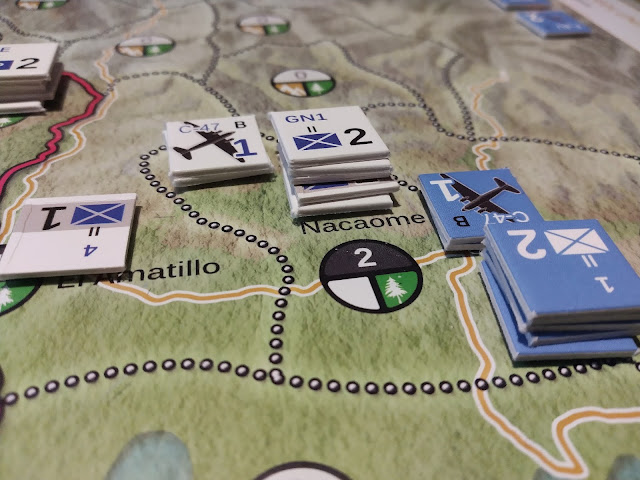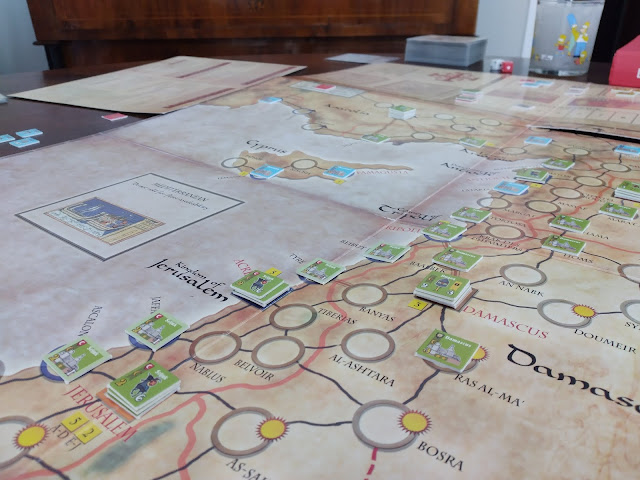Commands & Colors: Ancients. The battle of Akragas
Battle of Akragas, aka Agrigento, 406 BC. The Carthaginians have besieged the city of Magna Graecia, and have divided their troops: one part of the army holds the city, while another is somewhere else, ready to intervene if the Syracusans try to send some troops in defense of Agrigento. Which happens.
The Carthaginian army is largely made up of mercenary auxiliary troops not particularly well organized. The Syracusans one are instead elite troops, which deploy a fair amount of heavy infantry right on the right side, the slightly scarcer one of the Carthaginian line, which also can count on the availability of war chariots, terrible in skirmishes.
The Syracusans choose to divide the battle line in two: while the elite troops advance inexorably but slowly towards the weak side of the Carthaginians, on the left side will remain support troops. In truth, the latter turned out inferior to the Carthaginian soldiers, who put pressure on this group trying to disperse it. After a first tactical retreat that was an expression of great discipline as well as cowardice, the archers and the Syracusan auxiliary troops managed to carry out a counterattack. With the contribution of a reasonable amount of luck, the action worked: two entire Carthaginian units collapsed under Syracusan arrows and javelins.
The initiative then returned to the Syracusans, who definitively put pressure on the auxiliary troops on the right side, condemning them to a massacre. The Carthaginian army then dispersed, beating a desperate retreat towards Akragas where history has it that the siege was actually won by them, thanks to a control of the Greek marine supply lines that left the Agrigentines without supplies for eight months.
But that's another story.
Do you want to read other stories? Click here for the full list.









Comments
Post a Comment